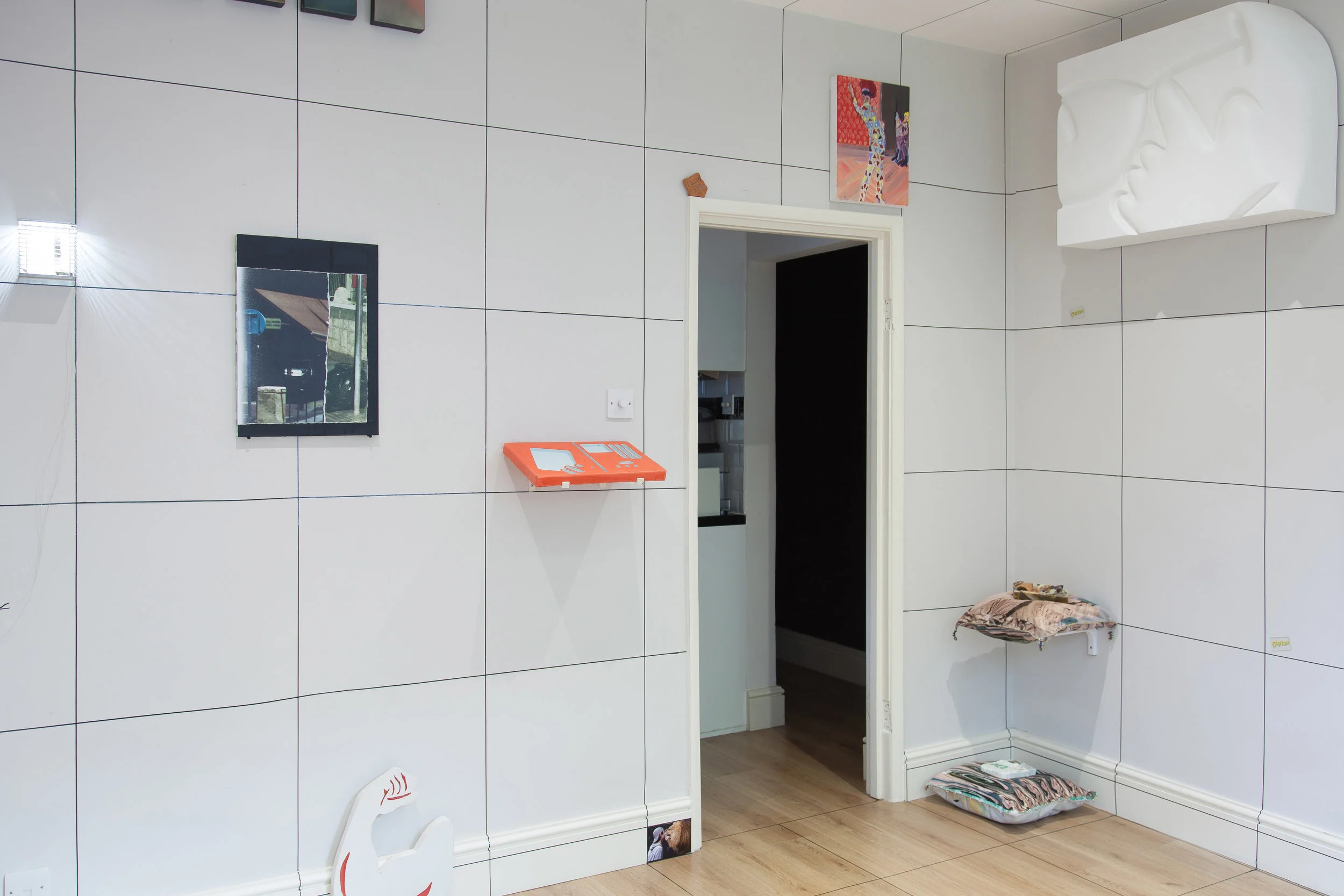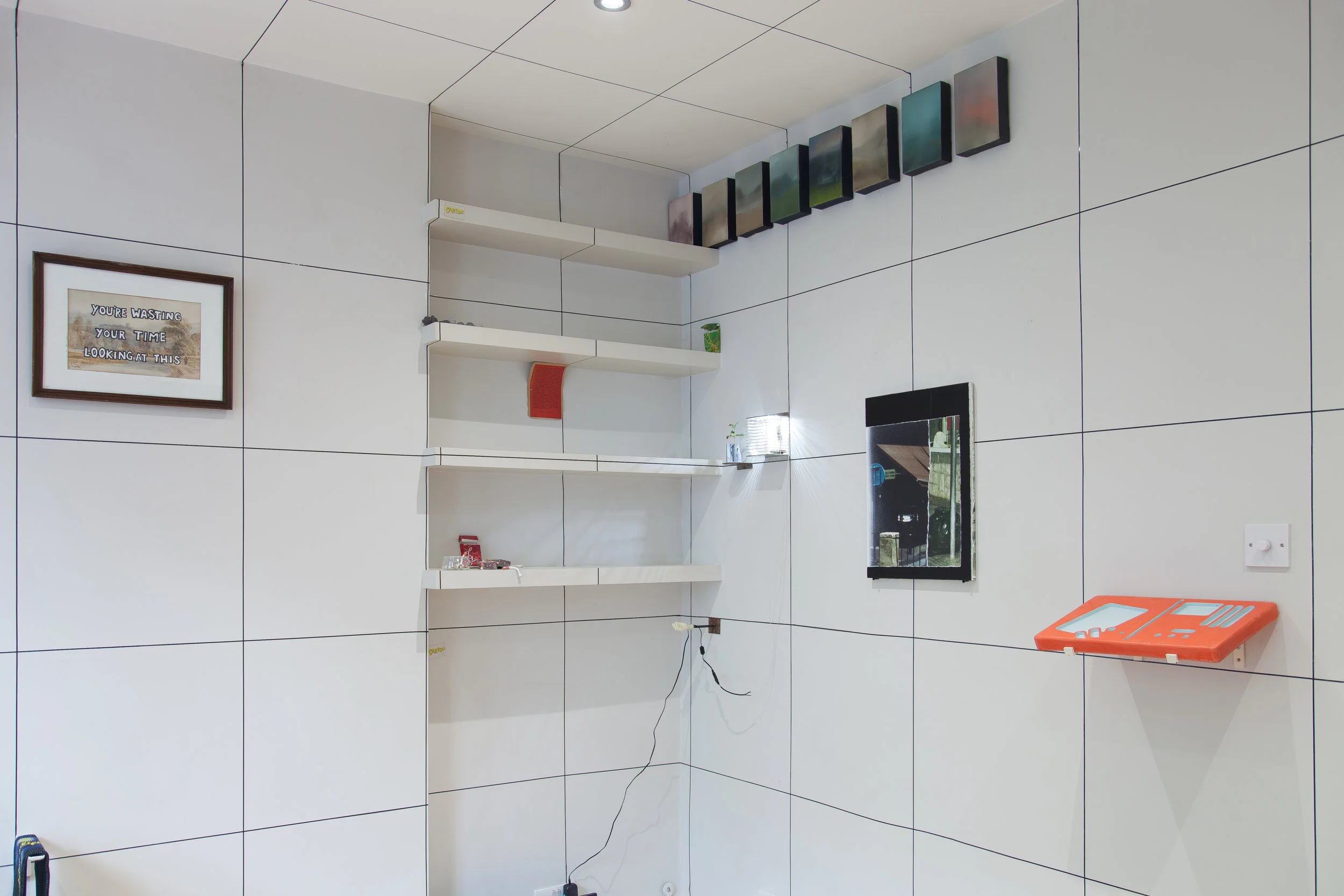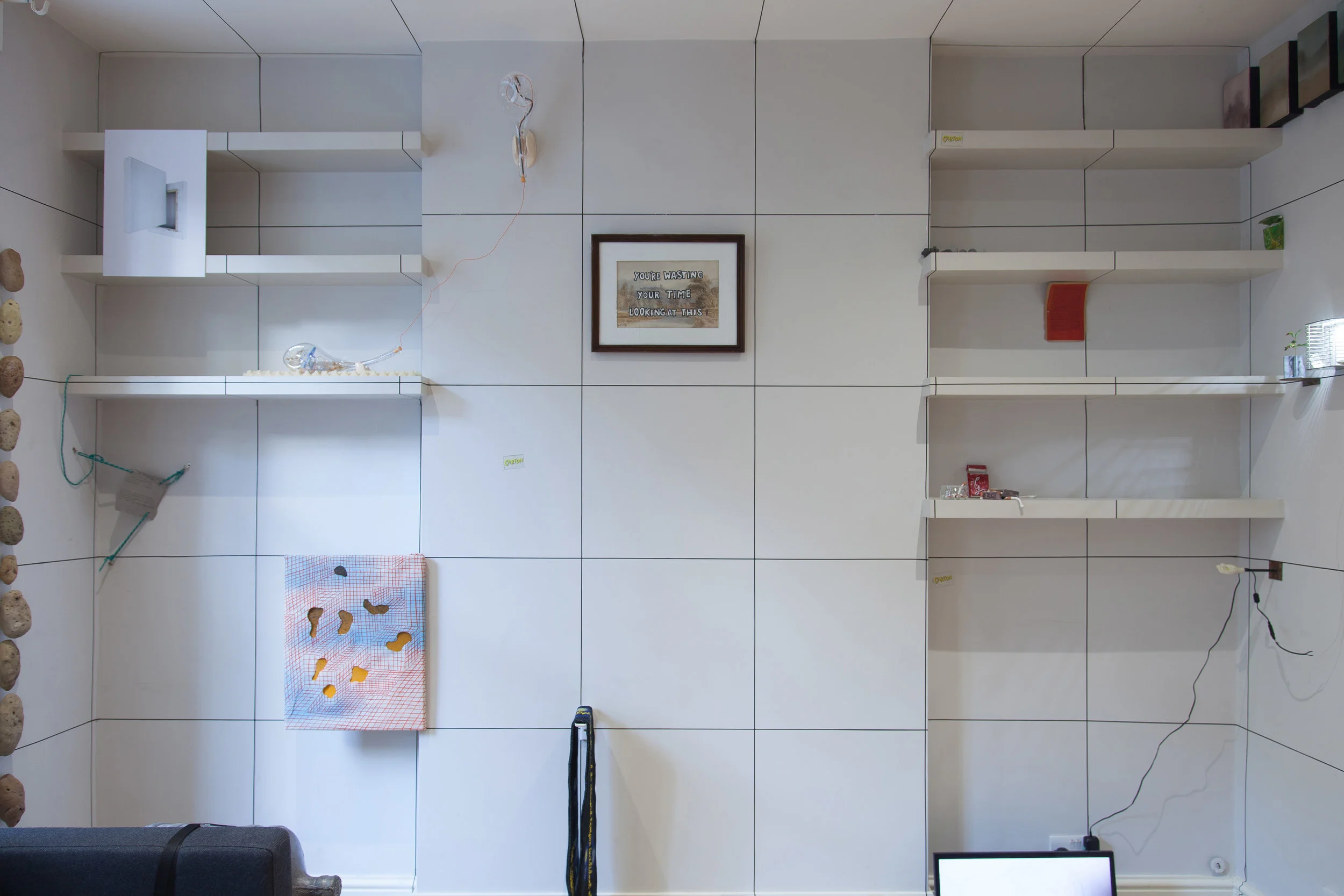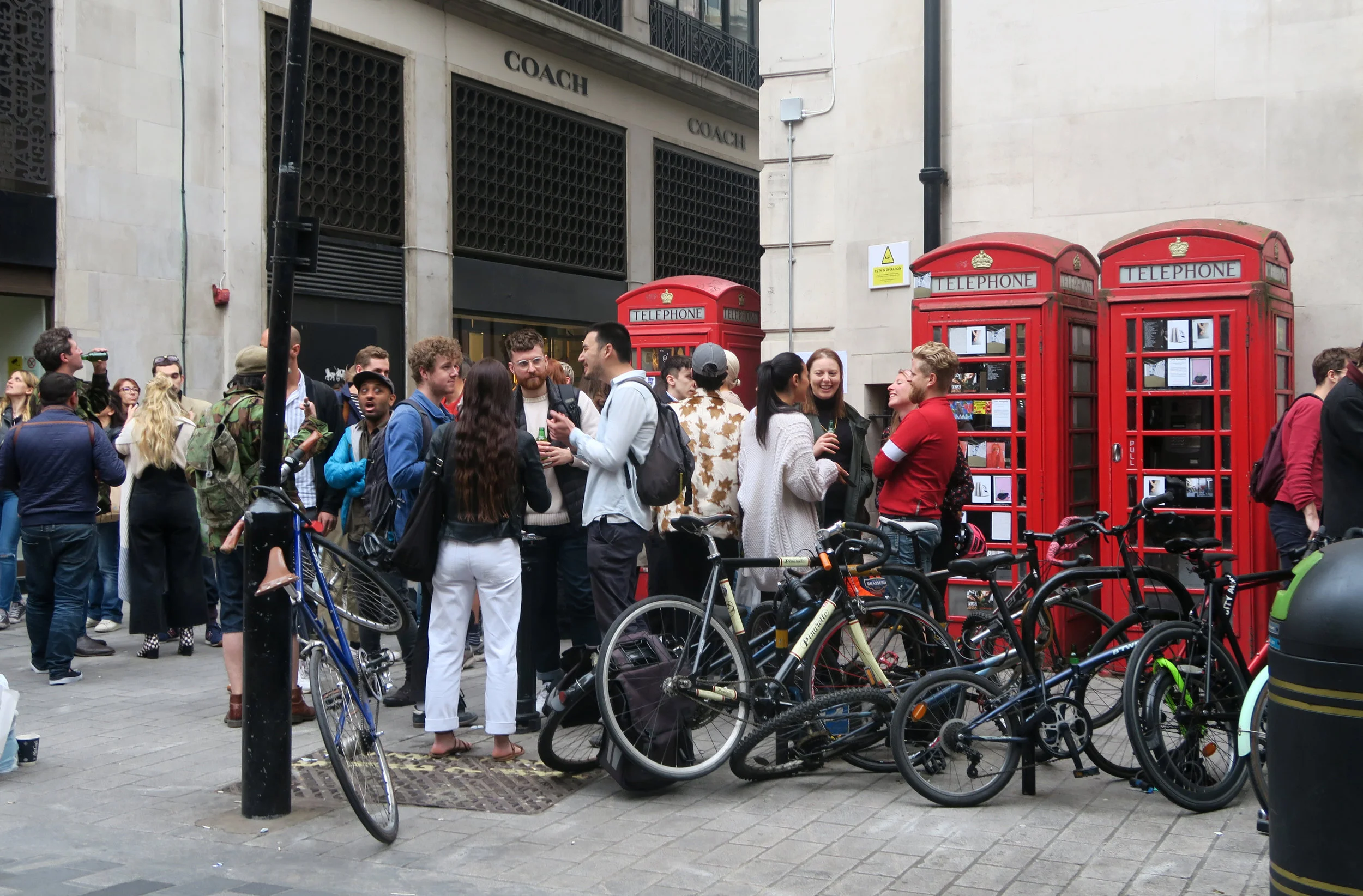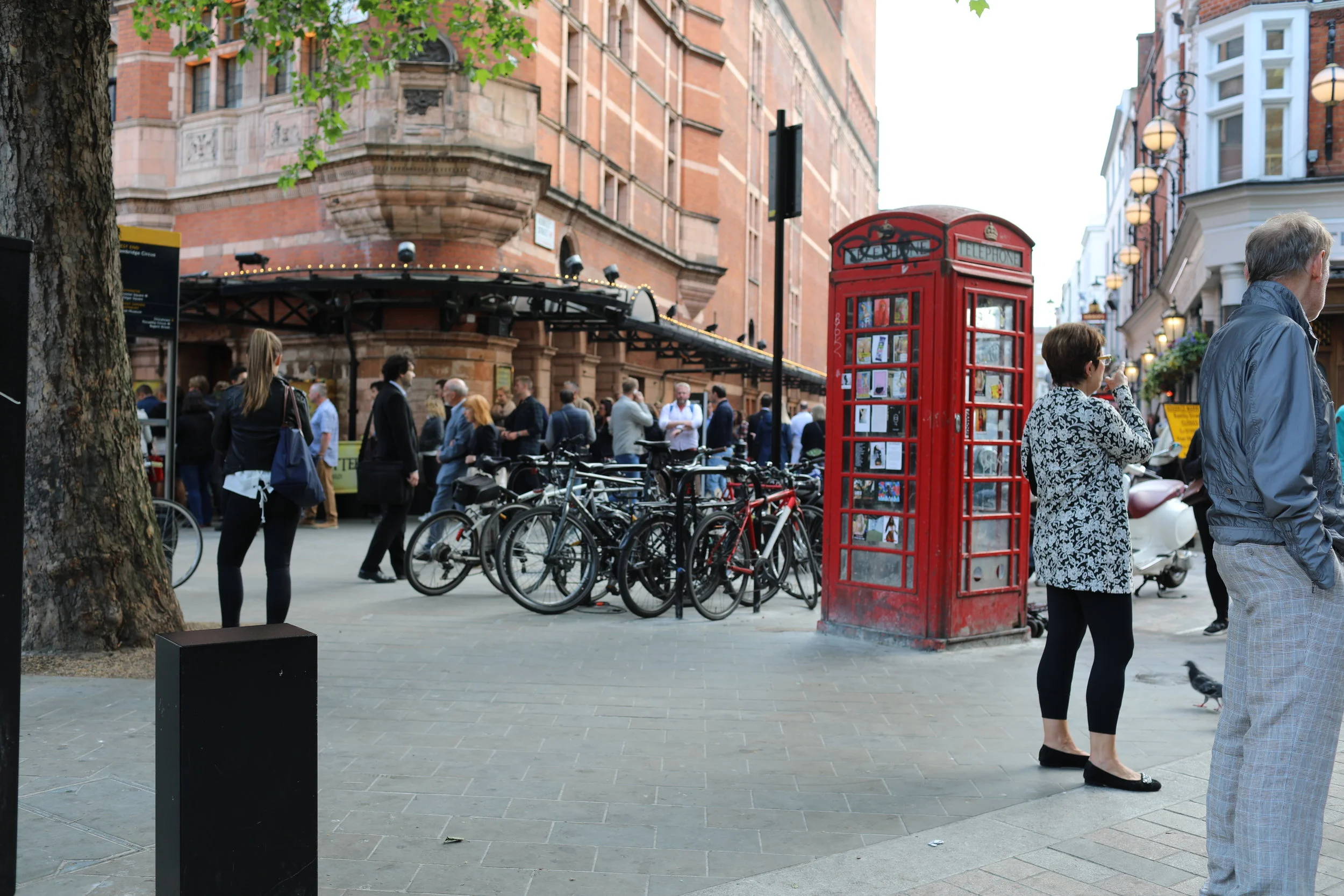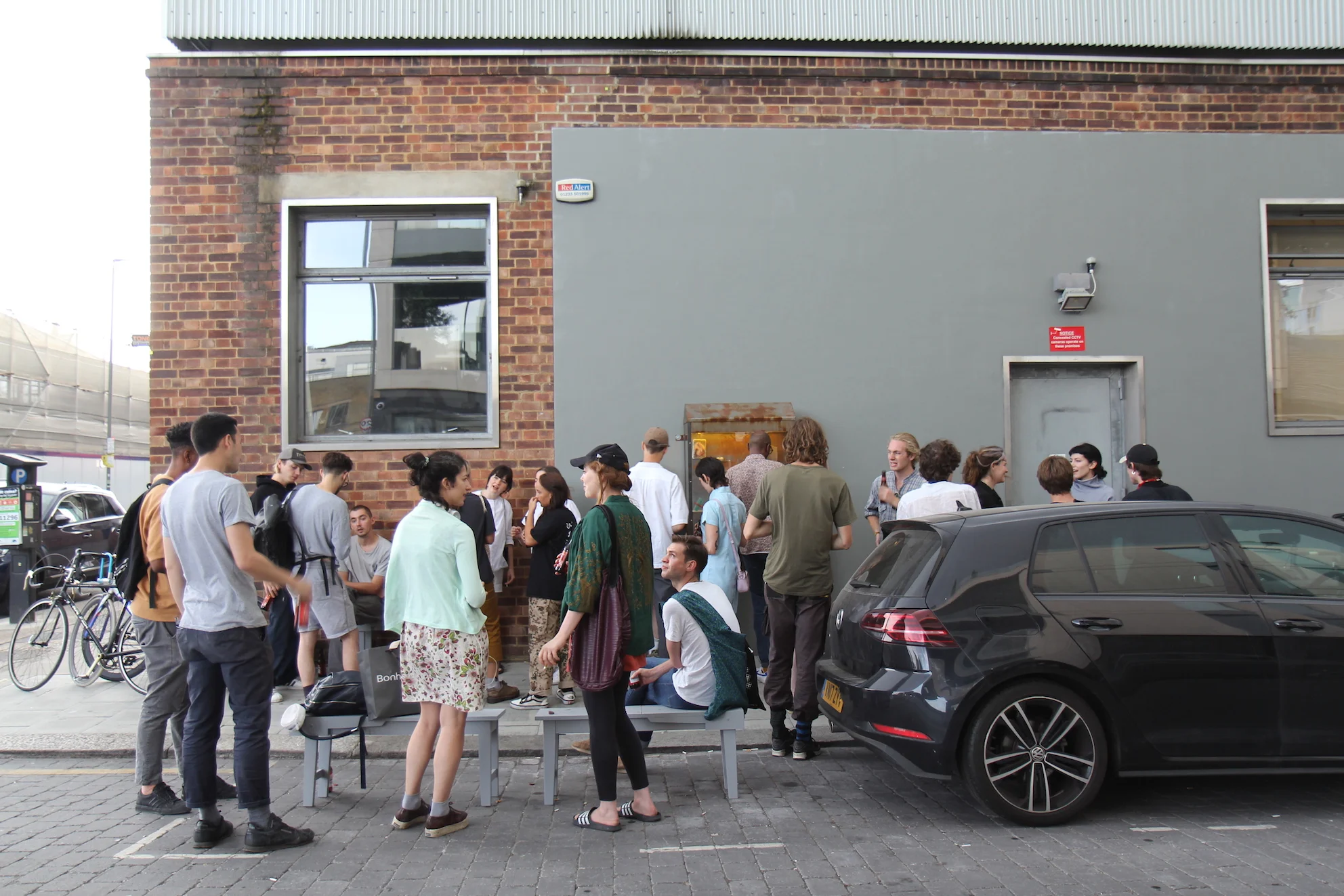Extended Call / Nelle Gevers & Billy Fraser
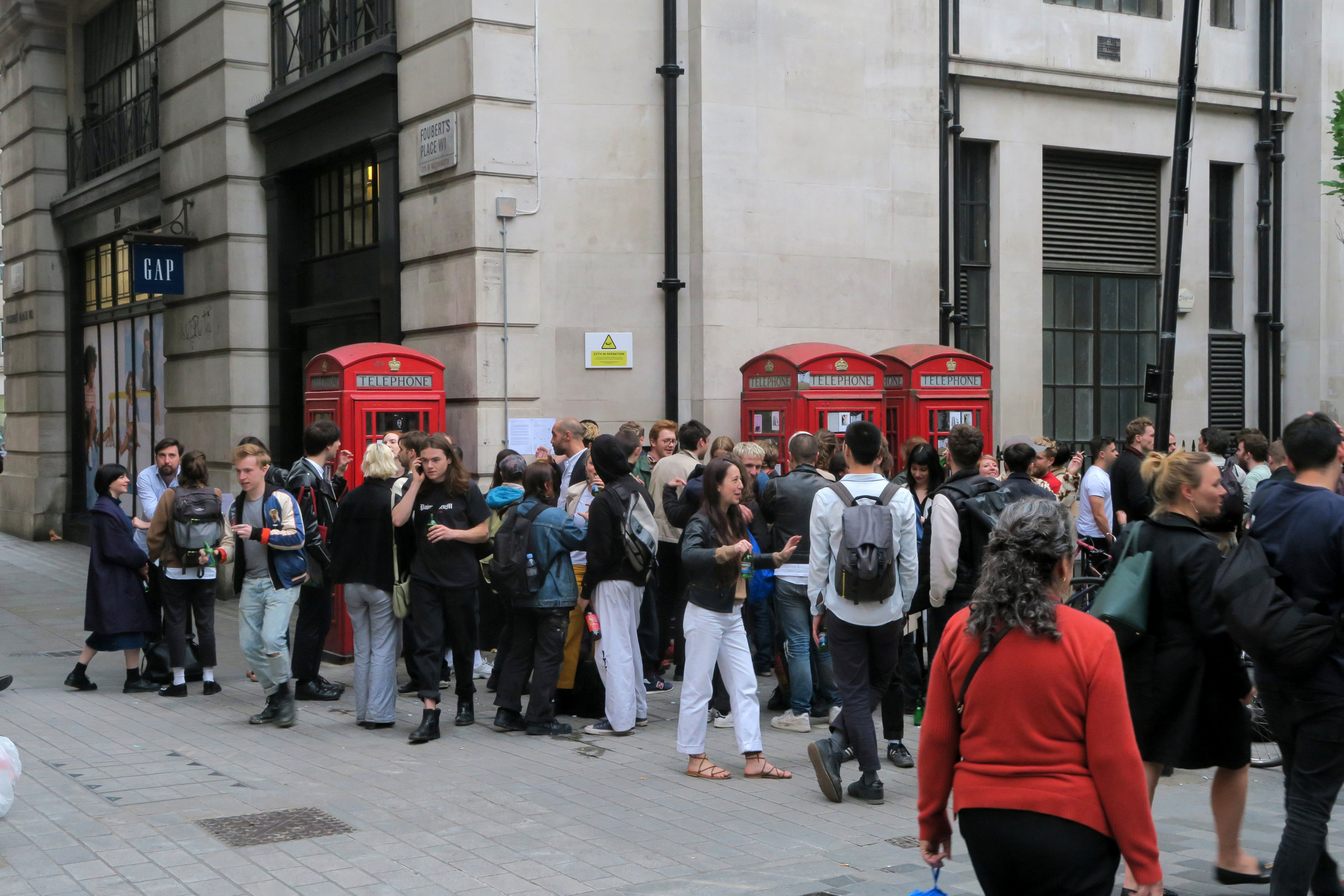
“The phone boxes were symbolically significant as well as being totally public, forgotten… loaded with so many connotations...”
Our interview with Nelle Gevers and past Floorr interviewee Billy Fraser, founders of Extended Call
Interview by: Natalia Gonzalez Martin
Could you tell us a bit about yourself and your background? Where did you study?
Nelle Gevers: We both studied at Chelsea and where we met, coming from different places.
I come from the countryside of Belgium and finished high school in Northern Italy before arriving to London. I had only known rather small villages beforehand and had spent most of my teens alone in fields or escaping to Brussels.
Billy Fraser : I went to a fairly right wing secondary school and only really got a sense of who I was In my first year of art foundation. Since then it’s always felt like something to prove, to the countless teachers and peers who insisted a life in art was a life wasted. During my Foundation year I found my feet, after three years at Art University I felt confident enough to begin my own experimental projects.
You recently co-curated a very ambitious project, ‘Extended Call’, with almost 35 artists in total and many different locations. How did this start?
NG: Billy was collecting phone-cabin cards and showed me his collection one day. He had already curated some successful and cool shows and I had more experience with experimental and rough curations. He proposed to collaborate and it felt obvious that we could really push each other further.
BF:Fresh out of Uni, I fell straight into a full time job in Soho, I spent many a day walking drives to different post houses, my practice spinning around in my head. Every 50 meters there was the iconic red phone box…. filled with all kinds of calling cards. I became fixated on these public spaces, their function, both past and present. Once it was apparent whoever was distributing the calling cards was doing so prolifically, I began to wonder how this person would engage with an entirely different content dwelling within the disused, lost, public phone box.
Extended Call Pt.3, Subsidiary Projects
Extended Call Pt.3, Subsidiary Projects
Extended Call Pt.3, Subsidiary Projects
Could you talk a bit more about the project and the different stages it went through?
First of all we discussed the project with Charlie Siddick, a talented writer who had written a piece for the show ‘Megalopolis’. Next we contacted 12 initial artists and invited them to make a postcard-sized work that could be displayed in 10 phone boxes, within a specific catchment area in Soho over the duration of two weeks.
We organised an opening in the street and we re-filled each of the phone boxes with cards each day. We were super surprised at how well the event turned out to be.
We wanted initially for Extended Call to serve as a prop for discussions about space, curation, alternative exhibitions, constraints due to locations, authorship, Free distribution and public space in London.
We then re-invited our initial artists to show new works in another uncanny location: the Parasite Space. The Parasite is a cabin built and managed by Victor Seaward by the RCA. We curated there a micro-exhibition, playing again with the notion of constraint, togetherness and public display. Once again, we were very happy at the turnout, and the support from both artists and those who travelled to see the micro show as we never really had an idea of how each stage would operate until after reflection. For Pt.3 Extended Call travelled to Subsidiary Projects a progressive platform offering emerging artists a space from which to test curatorial ideas. We knew it was a perfect space for Extended Call to cumulate so we made sure to get Natalia the director on board from the beginning!
What exhibitions had an impact or influence on the creation of Extended Call?
BF: The work of people involved! Realising throughout Extended Call that each iteration hand become a space for discussion for Pt.3’s conclusion we decided to organise a conversation panel to talk around some of the main ideas giving purpose to the project. We were amazed how many people showed up to listen in, we are eternally grateful to Paul O’Kane for ‘totally’ taking the conversation down the river and to James Capper, Natalia Gonzalez, Ellie Wang & Andy Wicks for their diverse and insightful contributions to the chat.
NG For me, I wouldn’t specifically name one show but having seen lots of house-shows, office-shows, non-galeries shows, people trying to squat, people sharing studios, artists going around town making things and events with little money, super high rents and non-inclusive galleries. I think the whole climate of London kind of laid the questions we kept on asking. What role do we play in gentrification, who do we really invite, is the show honestly accessible, how can we push ourselves to deal with our own problematics and although not pretending to solve anything, how can we foster a discussion throughout the process of this show as sincerely as possible.
Extended Call Pt.1
Extended Call Pt.1
Extended Call Pt.1
Extended Call Pt.1, 12 Artists Involved
How did each space affect the work and the artists approach to it?
It is hard to speak for a group of people or to even speak for each artist but each space had very different attributes and mythologies to it.
The phone boxes were symbolically significant as well as being totally public, forgotten… loaded with so many connotations...
The Parasite is… well exactly that, something conscious of its own spatial defiance and purpose. On display 24 / 7 yet not physically accessible as with Pt.1
Subsidiary is a domestic space, often re-converted into a gallery yet never trying to hide nor mask its intimacy and homeliness. We tried to always welcome the artists within the spaces, the initial discussions, so rather than to impose, to unwrap and stretch the potential and characteristics of each ‘alternative’ space. We also welcomed a new mix of artists via a very open .. open call.
Where did the title come from?
BF:I love not knowing where the title came from!
NG: We started with the phone boxes, put our numbers on the flyers and literally invited anyone respond to our call, to extend it together and see where it would go!
BF:extended call became Extended Call.
NG: Yes, it was kind of just what it is.
What about the audience, what conclusion did you get from all the different modes of display and how viewers reacted to them?
NG The audience have been great beyond our expectations. Since the first event in the phone boxes, we had loads of interesting and open conversations that felt essential and the purpose of Extended Call. All these discussions have shaped our modes of working and are still at the front of my mind.
BF: Personally I spent a great deal of time re distributing and documenting the first instalment. I was amazed how many strangers to the project, members of the public double took the phone box, then would stop to: to read Harry Dickinson's Poems, to submit items via email to Nathaniel Faulkner’s advertisement … to make a considered choice about which postcard would be prised from within the booth, taken away, to a new home.
By the final instalment we had flooded the streets of Bonnington square for Luca Bosani performance of ‘KNAVES OF RADIANCE (the Bipotential stage)', putting traffic at a standstill. Every driver we went to apologise to was only stationary as they wanted to watch as well! The project was full of surprising encounters, conversations and new friendships, that’s what made it so enjoyable for us and why we really pushed for an ambitious 33 artist strong Pt.3 instalment!
Parasite, Extended Call Pt.2
Parasite, Extended Call Pt.2
Parasite, Extended Call Pt.2 PV
Both of you have a varied practice, from writing to making art and curating. How do all of them affect each other?
NG: It’s hard to describe. Within my art practice, I felt a shift in the past years during my studies realising that It felt essential to me to collaborate, question the accessibility and entitlement to space, institutions and structures. My current art practice aims to play around structures with fluidity, porosity and pervasiveness. Each space, each event will be rather an experiment and research related to the specifics of the expectations within such space, used to invent methodologies together. I see curation, dialogues and collaborative events as a part of my practice, all together interweaved.
BF: One of the most precious part of my practice is getting to collaborate with the peers I am surrounded by. My practice is split evenly between painting, sculpture and curation, It’s been healthy managing my time this way. I shared a studio with Nelle in my final year at Uni, we became good friends debating the more peculiar nuances of our interests.
Is there anything new and exciting in the pipeline you would like to tell us about? - After the three instalments, what is next for Extended Call?
London Based British/Lebanese artist Alia Hamoui Is preparing a residency program in the South of France, It's still in very early days. We intend to see if there are many from the pool of artists involved in Extended Call who would like to participate in a two week residency culminating in Extended Call Pt.4
We are very excited ourselves to follow the practices of those who have been involved in Extended Call so far. Ted Targett will be releasing the publication ‘Carton’ early in the new year, which we eagerly anticipate! (gel stickers flowing throughout Extended Call Pt.3) p.s. Keep an eye out for any mention of Absinthe many Extended Call artists will be showing again during 2019.
NG: Id just encourage everyone to support emerging artists, support networks of people trying to open up spaces for discussion, to stay critical, investigative institutions and exhibitions and to invest spaces communally.
Pt.1 & 2 Artists
Eva Kraljic, Fenella Brereton Harry Dickinson Nathaniel Faulkner Alia Hamaoui Maison Hefner Realf Heygate Louis Judkins Carmen and Luisa Cred Roy (beta version) Daisy Parris Rhiannon Rebecca Salisbury Victor Seaward
Open Call
Rachel Irons, Veronika Neukirch, Pippa Eason, Kirsty Harris, Paul Vivian, Amanda Kyritsopoulou, Trystan Williams, Sanne Maloe Slecht, Mitch Vowels, Joe Richardson, Max Kesteloot, Georgia Sowerby, Sebastian Chaumeton, Alexander Glass, Connor Brazier,
Invited Artists
Andrew Hart, Luca Bosani, Ted Targett, Juan Manuel Salas Valdivia
All images are courtesy of the artist
Date of publication: 21/01/19
